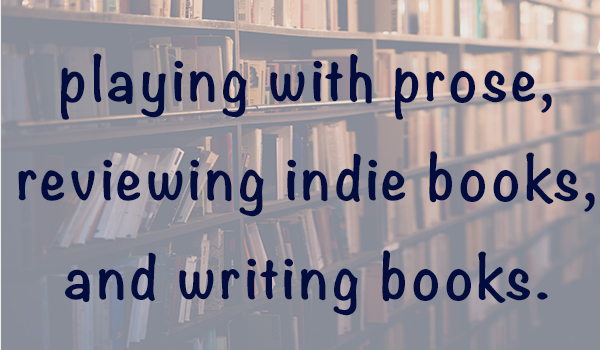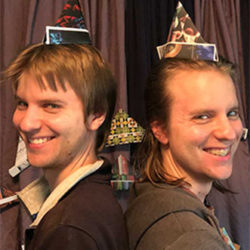
Blog 58: I get kissed by a pretty girl
Hello everybody, today we have a piece titled Today I get kissed by a pretty girl by Trenton Thomas
Paragraph 1
The lava below me bubbles and pops as I fall. I guess you wanted to know what led to this? Well, you asked for it.
This paragraph leaves me conflicted; the author chose a particular style to begin their story, but I dislike the style. The theme of ‘character facing peril, freeze frame ‘Bet you’re wondering…’ is a cliché and, in my opinion, an ineffective gimmick. I consider it a gimmick because instead of starting the story someplace interesting, giving the readers a narrative worth following, the author says ‘bear with me, it’s going to get good eventually.’ It’s ineffective because it’s a hollow peril, we have no stakes in the outcome and no connection to the character or narrative, nothing to make us lament his potential demise or fear it. Action and danger without narrative or stakes is just white noise and boring. The narrative and stakes can differ: action comedy often has scenes without real stakes because it’s a setting for comedy (The ‘comedy’ replaces the ‘narrative’ as the driving compulsion to continue in those sequences.) and stakes can be personal to the reader or to the character (Many times the death of a character is compelling to the reader outside of the immediate story.)
There’s also the question of what this style tells the reader subliminally, one of the more notable messages being that there’s no actual peril in this scene because your MC’s recounting it. The issue there is that the author’s trying to use the peril (which there is none) to entice the reader’s forward, thus the attempt is self-defeating. This lack of peril is also somewhat due to the author’s tone; the words they utilize are nonaggressive with ‘bubbles’ and ‘pops’ lacking any innate threat, and the MC’s inner dialogue being unconcerned and conversational.
All that aside, this style is not irredeemable. In movies it is often portrayed as a comedic event, which can work if it makes readers/viewers want more of the joke. Another method is sculpting the scene in such a way that it tells the reader ‘getting here was awesome, it’s a story you’ve got to hear’. Yet, this opening paragraph has no inherent joke to it, either visually or in the MC’s dialogue and the danger/scene of them falling to the lava is fairly pedantic. A fairly exaggerated example of this would be “I plummeted toward the bubbling lava, my brand new clown suit fuming in the heat, desperately scrabbling for purchase. I couldn’t fail here, I had to survive. If I didn’t, a thousand babies would be doomed to a purgatory of tea parties and basketball games, and it would be all my fault.” So, this is obviously a little goofy, wildly overexaggerated and weird, but all of those things can be appealing. The ‘thousand babies’ is excessive to the point of incredulity, but it tells you the story’s not going to be serious, it’s going to be goofy and outlandish, and it gives stakes. The clown suit adds to the absurdity, but also the visual-ness and the ‘brand new’ adds vibes of ‘I just got it to’ which is a joke (albeit an extremely cliché one.) Yes, all of this is absurd, but its vibrant and distinctive, advertises what this story is going to be, and a lot of people like the absurd. It also makes you ask ‘what the hell is going on’ and curiosity is a great motivator.
As for how I would adjust it? I would delete this paragraph and start with the next. I don’t know enough about the story to supplement what the paragraph is lacking and it currently does not fulfill its intended purpose. I will still edit it from a technical standpoint, however.
The first sentence “The lava below me bubbles and pops as I fall” is weakened by its passive structure; ‘as I fall’ has no inherent moment to thrust the narrative forward, and no inherent danger. So I would convert it to an active sentence “I plummet toward the bubbling lava.” ‘Plummet’ conveys speed and danger that ‘fall’ lacks and leads the sentence with them instead of attaching them at the end. ‘Bubbling’ is sufficient without ‘popping’ because they both convey largely the same occurrence, so I deleted the less dangerous sounding of them, ‘pops’.
The second sentence has a small grammar error in ‘wanted’. Since this is a present tense discussion that needs to be ‘want’ and probably a ‘you’ll’. That’s it for the purely technical changes.
Paragraph 2
Five years ago to the day I had arrived at Safe Place. It had a real name, Tutum, and that’s what I called it. I can’t call it Safe Place anymore because that’s what Mother had called it but she was… Somewhere. Where? I didn’t know. But Somewhere.
For this first sentence there’s a couple technical errors, the most significant being that it’s not a complete sentence. ‘Arrived’ is actually an adjective here because it’s part of the introductory phrase/qualifier of ‘Five Years ago’. Or there needs to be a comma after ‘day’ thus showing where the introductory phrase ends. The ‘had’ is also incorrect since ‘five years ago’ already located this sentence in the past tense. ‘Had’ is best used for when a character in a past tense narrative references something in their past (resulting in a double-past, inception style shenanigans) otherwise verbs ending in ED tend to suffice. I mention this because the author uses another unnecessary ‘had’ in this paragraph’s third sentence. Another issue is that he refers to it as ‘Safe Place’ despite saying he should refer to it as ‘Tutum’ in subsequent sentences. This is a soft contradiction that isn’t really explained, further complicated by us not knowing why he can’t call it ‘Safe Place.’ Yes the author cites that it’s because ‘Mother’ called it that, but that’s insufficient. Why does ‘Mother’ calling it ‘Safe Place’ mean our MC can’t? Maybe this is the author’s attempt to tease the readers with a question/answer, but there’s not enough there and there’s too much emphasis placed on ‘somewhere’, leading me to believe that’s the question/answer tease (and it works in that regard because the emphasis tells the reader there’s a question and answer in a way that ‘Mother called it’ doesn’t.) Continuing from there, the ‘but she was…somewhere’ needs to be moved to its own sentence. It’s not contradicting anything in the rest of the sentence, nor does her absence have anything to do with what came before. Finally, there’s the ‘and that’s what I called it’ which is a soft repetition on ‘I can’t call it Safe Place’ in the sentence that his inability to call it ‘Safe Place’ would leave no other option other than to refer to it as ‘Tutum’. Plus, ‘And that’s’ is just somewhat clunky in this situation, reading tacked on and simplistic. Even knowing it has two names, the phrasing of ‘It’s called Tutum, and that’s what I called it’ is a bit wonky.
—Five years ago to the day, I arrived at Safe Place; though it has a real name, Tutum. I can’t call it Safe Place anymore because Mother called it that and she’s… somewhere else. I don’t know where.—
There are several changes here, one of those being ‘it had a real name’ to ‘has a real name’ and this is dependent on whether or not Tutum still exists in the main character’s present. I also combined the first two sentences with a ‘though’ because I think it reads smoother. The second sentence feels more organic as an add-on/continuation of Safe Place/Tutum’s introduction; the conflict of the name is treated as different parts of the same thought, so his use of the two names feels less contradictory. I replaced ‘that’s what’ by shifting the ‘that’ to after the ‘it’ in ‘Mother called it that’, thus cutting two words. I added the ‘else’ to ‘somewhere’ both because I liked the way it read better (phonetically) and because it subtly emphasizes her absence, makes it more personal to the reader because ‘else’ says she’s away from him. Finally, I reduced to ‘Where? I don’t know. But Somewhere’ to ‘I don’t know where’. This is shorter and smoother, requiring fewer sentences/periods but doesn’t lose any of the meaning or impact. The ‘but somewhere’ was objectively repetitive on ‘somewhere’ and was necessary only for rhythm to close the paragraph. Changing the structure removed the need for it.
A couple other changes I might make would be delete ‘to the day’ as needlessly specific (unless that specificity has actually importance to the narrative) and also as something of a cliché. Another change to consider would be rearranging the first sentence to lead with ‘I arrived’ instead of ‘Five years ago.’ This, I admit, might largely be personal preference, but I prefer to lead with the action. ‘Five years…’ is a preamble and inserts a minute pause (the comma) in the sentence that leading with ‘I arrived’ does not. Sometimes you want pauses in thoughts (They’re great for emphasis or to give the readers small breaks so they’re not trying to manage a deluge of words) I just don’t like them at the start of a paragraph, where you’re trying to build momentum.
—I arrived at Safe Place Five years ago, though it has a real name, Tutum. I can’t call it Safe Place anymore because Mother called it that and she’s… somewhere else. I don’t know where.—
Unfortunately, this doesn’t quite work; it ruins the rhythm for ‘though it has…’. There’s not enough to the main sentence to make it feel like a full breath/thought. The ‘though’ afterthought is read as part of the sentence’s initial flow, as part of the main sentence instead of the ‘after thought’ likes it’s written. So we’ll have let this experiment end there.
Final edit
—Five years ago to the day, I arrived at Safe Place, though it has a real name, Tutum. I can’t call it Safe Place anymore because Mother called it that and she’s… somewhere else. I don’t know where.—
There still remains the issue of why he can’t call it ‘Safe Place’ but the paragraph flows better, with each thought leading into the next a little smoother.
If you liked my work, consider subscribing.
If you like what you read, check out the rest of the story or some of the author’s other works.
1 Comment
Comments are closed.


altyazili
Dec 12, 2020, 7:45 amHere is a superb Blog You might Come across Intriguing that we encourage you to visit. Karlotte Christoffer Ludovika